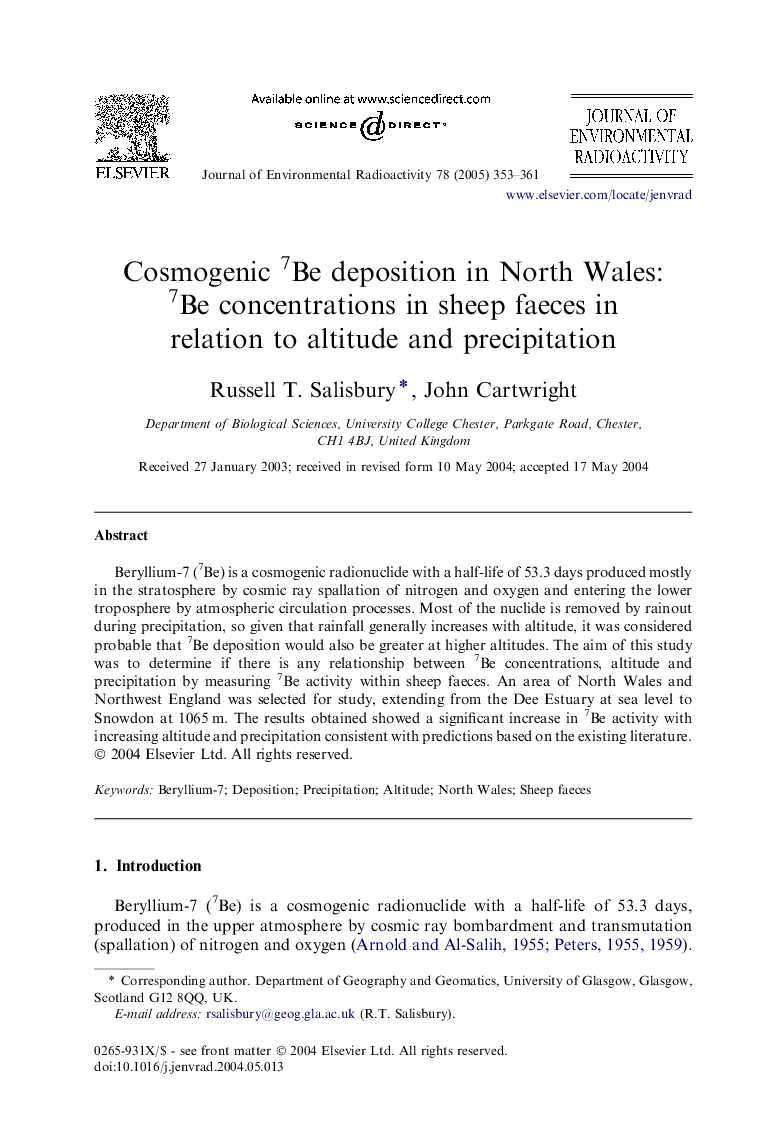| Article ID | Journal | Published Year | Pages | File Type |
|---|---|---|---|---|
| 10686833 | Journal of Environmental Radioactivity | 2005 | 9 Pages |
Abstract
Beryllium-7 (7Be) is a cosmogenic radionuclide with a half-life of 53.3 days produced mostly in the stratosphere by cosmic ray spallation of nitrogen and oxygen and entering the lower troposphere by atmospheric circulation processes. Most of the nuclide is removed by rainout during precipitation, so given that rainfall generally increases with altitude, it was considered probable that 7Be deposition would also be greater at higher altitudes. The aim of this study was to determine if there is any relationship between 7Be concentrations, altitude and precipitation by measuring 7Be activity within sheep faeces. An area of North Wales and Northwest England was selected for study, extending from the Dee Estuary at sea level to Snowdon at 1065Â m. The results obtained showed a significant increase in 7Be activity with increasing altitude and precipitation consistent with predictions based on the existing literature.
Related Topics
Physical Sciences and Engineering
Energy
Nuclear Energy and Engineering
Authors
Russell T. Salisbury, John Cartwright,
